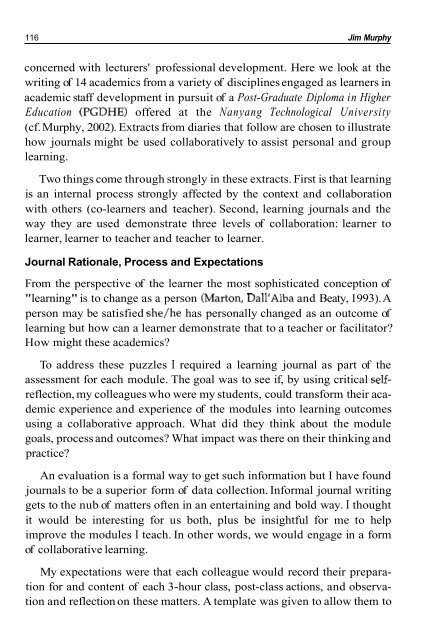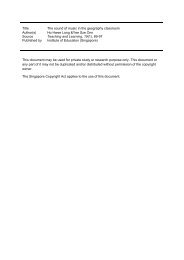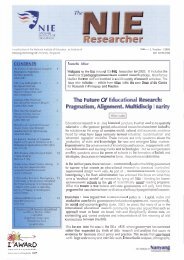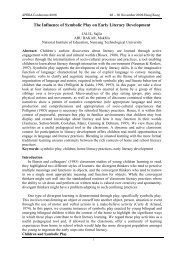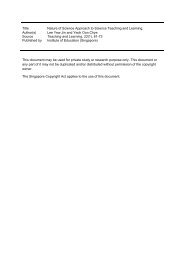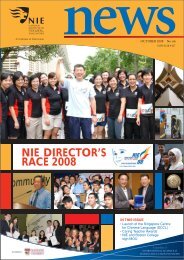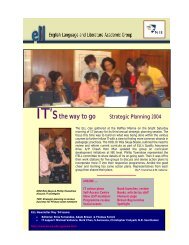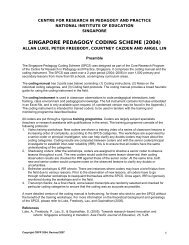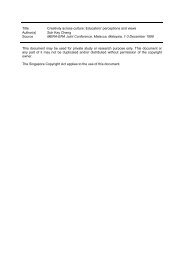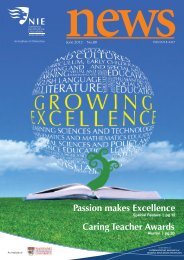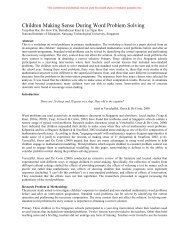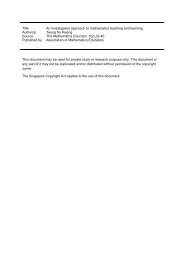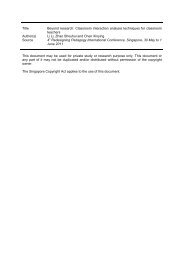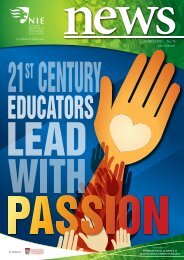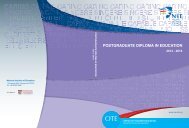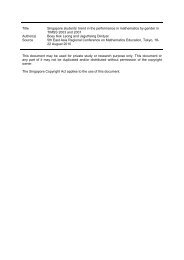Cooperative Learning - NIE Digital Repository - National Institute of ...
Cooperative Learning - NIE Digital Repository - National Institute of ...
Cooperative Learning - NIE Digital Repository - National Institute of ...
Create successful ePaper yourself
Turn your PDF publications into a flip-book with our unique Google optimized e-Paper software.
116 Jim Murphyconcerned with lecturers' pr<strong>of</strong>essional development. Here we look at thewriting <strong>of</strong> 14 academics from a variety <strong>of</strong> disciplines engaged as learners inacademic staff development in pursuit <strong>of</strong> a Post-Graduate Diploma in HigherEducation (PGDHE) <strong>of</strong>fered at the Nanyang Technological University(cf. Murphy, 2002). Extracts from diaries that follow are chosen to illustratehow journals might be used collaboratively to assist personal and grouplearning.Two things come through strongly in these extracts. First is that learningis an internal process strongly affected by the context and collaborationwith others (co-learners and teacher). Second, learning journals and theway they are used demonstrate three levels <strong>of</strong> collaboration: learner tolearner, learner to teacher and teacher to learner.Journal Rationale, Process and ExpectationsFrom the perspective <strong>of</strong> the learner the most sophisticated conception <strong>of</strong>"learning" is to change as a person (Marton, Dall'Alba and Beaty, 1993). Aperson may be satisfied she/he has personally changed as an outcome <strong>of</strong>learning but how can a learner demonstrate that to a teacher or facilitator?How might these academics?To address these puzzles I required a learning journal as part <strong>of</strong> theassessment for each module. The goal was to see if, by using critical selfreflection,my colleagues who were my students, could transform their academicexperience and experience <strong>of</strong> the modules into learning outcomesusing a collaborative approach. What did they think about the modulegoals, process and outcomes? What impact was there on their thinking andpractice?An evaluation is a formal way to get such information but I have foundjournals to be a superior form <strong>of</strong> data collection. Informal journal writinggets to the nub <strong>of</strong> matters <strong>of</strong>ten in an entertaining and bold way. I thoughtit would be interesting for us both, plus be insightful for me to helpimprove the modules I teach. In other words, we would engage in a form<strong>of</strong> collaborative learning.My expectations were that each colleague would record their preparationfor and content <strong>of</strong> each 3-hour class, post-class actions, and observationand reflection on these matters. A template was given to allow them to


